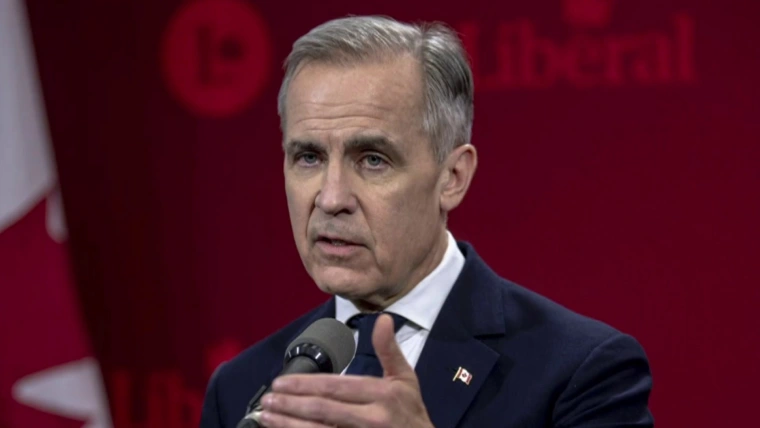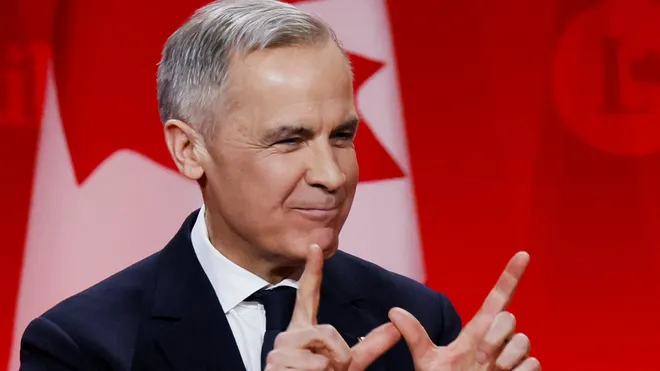Mark Carney, a former central banker with no prior political experience, has been elected as the new leader of Canada’s ruling Liberal Party and will become the country’s next prime minister.
Carney, who previously served as governor of both the Bank of Canada and the Bank of England, secured a landslide victory with 85.9% of the votes in the Liberal leadership contest. However, his tenure may be short-lived, as a general election is expected soon, with polls slightly favouring the opposition Conservatives.
Born in Fort Smith, Northwest Territories, and raised in Edmonton, Carney’s career trajectory has been anything but traditional. He studied at Harvard and Oxford before working as an investment banker at Goldman Sachs in cities like New York, London, and Tokyo. His economic expertise earned him leadership roles at central banks, navigating Canada through the 2008-2009 financial crisis and guiding the UK economy through Brexit uncertainty.

Despite his impressive resume, Carney faces criticism for his lack of political experience. Analysts describe him as a “technocrat” with limited charisma, which could prove challenging in a heated election campaign.
The Conservative Party has already begun attacking Carney as an out-of-touch elite, highlighting his wealth, international career, and past affiliations with global financial institutions.
A key battleground will be climate policy, where Carney has long championed investment in green technology. The Conservatives have branded him “Carbon Tax Carney”, attempting to tie him to outgoing Prime Minister Justin Trudeau’s controversial carbon pricing policy.
Mark Carney now faces the immediate challenge of rallying public support and countering opposition attacks ahead of the upcoming general election. His ability to connect with voters and communicate his vision effectively will be crucial in determining whether his leadership extends beyond a short-lived transitional role.


 Trending
Trending 